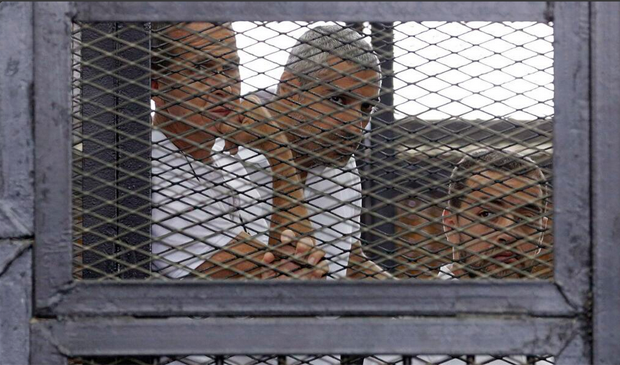#IndexDrawTheLine: Can art or journalism ever be terrorism?

Three Al Jazeera journalists were among those sentenced to prison on terrorism charges.
In 1997, British journalist Robert Fisk interviewed Bin Laden. Fisk was not accused of being a terrorist, he was only doing his job. For decades, journalists have been interviewing terrorists, criminals and drug lords, because this is their job; to give a voice to everybody, whether they agree with them or not.
Last month, Egypt sentenced three Al Jazeera journalists to seven years in prison under the country’s anti-terrorism laws; they were accused of spreading false information, as well as supporting the now banned Muslim Brotherhood. In an extremely polarised political climate, giving a voice to the Muslim Brotherhood was deemed inciteful and inflammatory.
Art has been a means of stretching the boundaries, but can art sometimes be a public safety risk?
A series of cartoons, some of which depicted Prophet Mohammed, published by a Danish newspaper in 2005 sparked angry and violent protests across the Arab world. The same happened again when a 13 minute trailer of a movie called Innocence of Muslims appeared on Youtube two years ago. Earlier this year, French comic and political activist Dieudonné M’bala M’bala was banned from performing after his shows were found to incite racial hatred and anti-semitic sentiment by French courts. The comedian was also banned from entering the United Kingdom.
These cases raise a very important question: When does giving a platform to extremist views through art or journalism become an act of terrorism? Should artists or journalists be exempt from terrorism laws or should inflammatory works be banned?
Get involved the discussion using the hashtag #IndexDrawtheLine and tell us — where do you draw the line?
